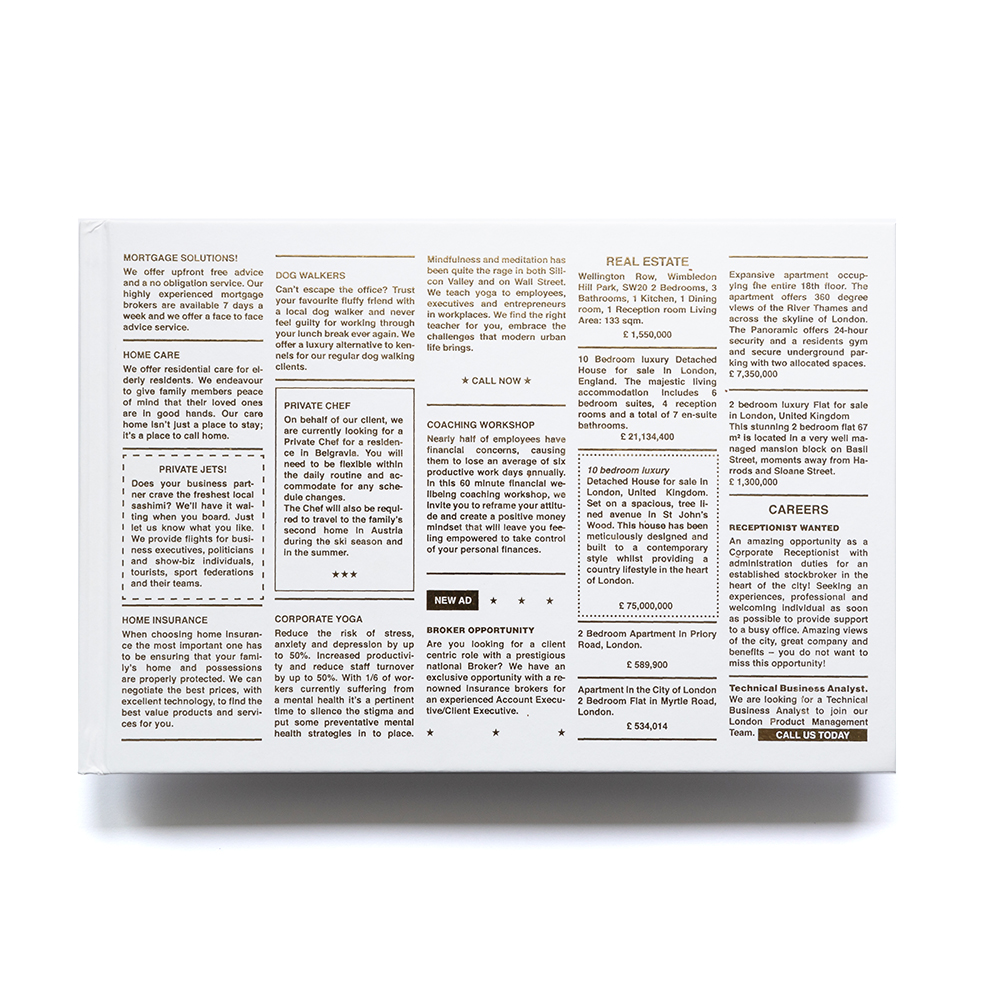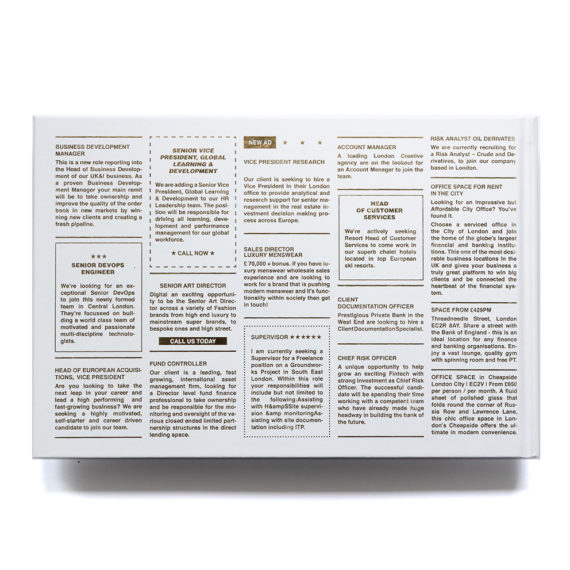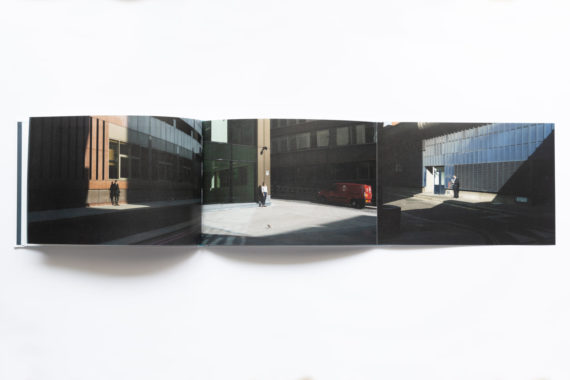Descrizione
[:it]
The City of London Corporation is one of the most important financial districts of the world and its architecture makes its economical dominion over the territory and the whole society itself particularly visible. In the contemporary metropolis, the highest building of the city is no longer the church, as it used to be in old cities. The symbolic presence of the church, which visualised the power of God on earth, has now been secularised. Corporations are now fighting each other to have the tallest building in order to express their symbolic control over the territory.In relation to the economic and social control as well as labour exploitation, Byung-Chul Han argues that neoliberalism’s ways to increases the workers’ productivity have changed; nowadays rather than to forcing the workers, neoliberalism motivates them, replacing the ‘should’ by the ‘can’. This motivational discourse that Han refers to is daily present in corporate jargon: ‘initiative’, ‘motivation’, ‘sacrifice’, ‘effort’, ‘improvement’ are words that circulate every day in the offices in order to motivate the workers. In terms of workers production, the ‘can’ is in fact more efficient than the ‘should’. In relation with workers productivity, the ‘should’ defines and reaches its limitations, while the ‘can’ does not imply any predetermined one. In this context, in which the workers seem to have some freedom for their productivity, Han questions the idea: ‘Although the achievement-subject deems itself free, in reality it is a slave. In so far as it willingly exploits itself without a master, it is an absolute slave.’The idea according to which the work production seems not to be defined is well reflected in the complementary salary of the bonus by corporations; in this way, the salary becomes something that cannot fully be determined, and neither can the work efficiency. In an environment where any productivity seems to be enough for companies, and labour productivity is not determined, the workers seem to be constantly exploited in the search of achievement. In this incomplete journey, the stress levels, anxiety, depression, as well as the insolation or fear not to achieve corporate goals, are psychological consequences and mental health disorders of new labour exploitation that neoliberalism pretends to put aside from its motivational discourse.The series ‘Already but not yet ‘ visualises the individual vulnerability and subordination to economical powers, which tend to reduce our existence to work achievements and material accumulation. With the aim of exploring the hidden ways of surveillance and labour conditions in the neoliberal society, this series challenges official and conventional representations of the metropolis, transforming it from mundane life into something uncanny.
[:en]
The City of London Corporation is one of the most important financial districts of the world and its architecture makes its economical dominion over the territory and the whole society itself particularly visible. In the contemporary metropolis, the highest building of the city is no longer the church, as it used to be in old cities. The symbolic presence of the church, which visualised the power of God on earth, has now been secularised. Corporations are now fighting each other to have the tallest building in order to express their symbolic control over the territory.In relation to the economic and social control as well as labour exploitation, Byung-Chul Han argues that neoliberalism’s ways to increases the workers’ productivity have changed; nowadays rather than to forcing the workers, neoliberalism motivates them, replacing the ‘should’ by the ‘can’. This motivational discourse that Han refers to is daily present in corporate jargon: ‘initiative’, ‘motivation’, ‘sacrifice’, ‘effort’, ‘improvement’ are words that circulate every day in the offices in order to motivate the workers. In terms of workers production, the ‘can’ is in fact more efficient than the ‘should’. In relation with workers productivity, the ‘should’ defines and reaches its limitations, while the ‘can’ does not imply any predetermined one. In this context, in which the workers seem to have some freedom for their productivity, Han questions the idea: ‘Although the achievement-subject deems itself free, in reality it is a slave. In so far as it willingly exploits itself without a master, it is an absolute slave.’The idea according to which the work production seems not to be defined is well reflected in the complementary salary of the bonus by corporations; in this way, the salary becomes something that cannot fully be determined, and neither can the work efficiency. In an environment where any productivity seems to be enough for companies, and labour productivity is not determined, the workers seem to be constantly exploited in the search of achievement. In this incomplete journey, the stress levels, anxiety, depression, as well as the insolation or fear not to achieve corporate goals, are psychological consequences and mental health disorders of new labour exploitation that neoliberalism pretends to put aside from its motivational discourse.The series ‘Already but not yet ‘ visualises the individual vulnerability and subordination to economical powers, which tend to reduce our existence to work achievements and material accumulation. With the aim of exploring the hidden ways of surveillance and labour conditions in the neoliberal society, this series challenges official and conventional representations of the metropolis, transforming it from mundane life into something uncanny.
[:]











